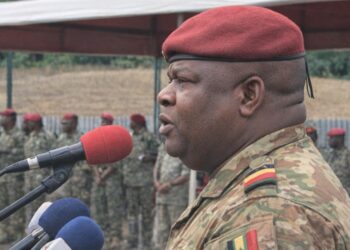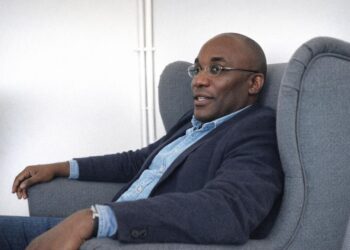Equatorial Geography and Continental Connectivity
Poised astride the Equator, the Republic of the Congo occupies a corridor linking the Gulf of Guinea to the heart of Central Africa. Its 160-kilometre Atlantic frontage appears modest on a map, yet affords a strategic maritime outlet supported by the deep-water complex at Pointe-Noire, an asset singled out by the African Development Bank as a regional trade enabler (AfDB 2023). Inland, three natural tiers—the Mayombé Massif, the Niari depression and the plateau system bordering the Congo River—form an amphitheatre that slopes gently toward the immense Congo Basin. This topography has historically channelled caravans, fibre-optic cables and political influence alike, reinforcing Brazzaville’s vocation as a translation point between coastal commerce and continental hinterland.
Hydrologically, the Congo River and its right-bank tributaries constitute one of the planet’s most voluminous drainage networks. Navigation south of Malebo Pool permits bulk cargo to pierce deep into the interior, while the Sangha and Likouala rivers cut commercial pathways toward Cameroon and the Central African Republic. Such fluvial arteries have prompted renewed interest in multimodal corridors combining river ports, rail spurs and paved roads—an agenda supported by the UN Economic Commission for Africa, which notes that transport costs in Central Africa remain among the highest globally (UNECA 2022).
The Capital as Urban Lighthouse on the Congo River
Brazzaville, founded in 1880 and now home to more than two million inhabitants, exerts gravitational pull well beyond the Congolese border. Across the river, Kinshasa’s skyline blinks in near-tangible proximity, creating the world’s closest pair of national capitals. Multilateral observers regard the Brazzaville-Kinshasa axis as a latent metropolitan powerhouse capable of rivaling Lagos if hard infrastructure and customs regimes were further aligned.
Internally, Brazzaville has pursued an urbanistic model that mixes Francophone civic grandeur with pragmatic expansion of peri-urban districts such as Talangaï and Mfilou. The government’s recent Special Economic Zone in Maloukou underscores official intent to relocate light manufacturing closer to navigable water, reducing logistics costs for timber and agri-processing firms. According to the Ministry of Planning’s 2024 outlook, the city accounts for over half of national GDP, underscoring why the administration prioritises power-grid reliability and riverbank stabilisation projects in the capital region.
Extractive Wealth, Industrial Targets and Fiscal Prudence
Hydrocarbons continue to anchor public revenue, with offshore production averaging 267,000 barrels per day in 2023, largely from deep-water blocks operated by ENI and TotalEnergies. Yet the authorities have adopted an increasingly calibrated narrative that pairs resource sovereignty with macroeconomic discipline. The 2022 re-profiling of external debt, negotiated in concert with the IMF, eased immediate service pressures while preserving space for social spending—an outcome the Fund itself characterised as “constructive” (IMF Country Report No. 23/45).
Beyond oil, the nation holds potash reserves along the Kola coast and untapped iron ore in Sangha. A Sino-Congolese consortium has revived plans for a 1,000-kilometre rail link from Avima to Pointe-Noire, signalling determination to monetise minerals without diluting environmental safeguards. Officials insist that any large-scale mining must comply with the national climate contribution submitted under the Paris Agreement, a stipulation welcomed by the African Union’s specialised technical committee on mineral resources.
Forests, Carbon Markets and Emerging Climate Leadership
More than 60 percent of Congolese territory remains cloaked in dense, biodiversity-rich rainforest. The country’s 2018 decision to place an additional three million hectares under protected status has attracted backing from the Central African Forest Initiative as well as a US$90-million results-based payment facility with the World Bank. In Dubai last December, Minister Arlette Soudan-Nonault described these carbon sinks as “our green OPEC”—a pointed yet diplomatic metaphor that positions Congo as a net absorber of global emissions.
Such stewardship dovetails with the Republic’s overtures to voluntary carbon markets. Standard Chartered’s 2023 assessment estimated that high-integrity Congolese credits could mobilise up to US$300 million annually by 2030, provided measurement, reporting and verification systems align with Integrity Council guidelines. While critics caution against over-reliance on offset revenue, diplomats observe that Brazzaville’s balanced rhetoric—insisting on both conservation and economic diversification—has bolstered its credibility in climate negotiations.
Regional Diplomacy and Security Corridors
Geography dictates that Congolese stability resonates throughout Central Africa’s volatile security mosaic. The corridor running from Owando toward Bangui remains vital for humanitarian flows into the Central African Republic, and its protection has figured prominently in discussions under the International Conference on the Great Lakes Region. Meanwhile, joint riverine patrols with the Democratic Republic of the Congo have reduced piracy incidents near Lukolela, according to the Maritime Security Centre for Africa.
Brazzaville also hosts discreet mediation efforts. In 2022, Congolese envoys facilitated a cease-fire framework between Chadian transitional authorities and dissident factions, illustrating the subtle leverage that accrues to a nation perceived as neutral yet geographically proximate. Observers at the Institute for Security Studies argue that such diplomacy benefits from Congo’s “low-threat profile and navigable diplomatic culture.”
Prospects for Sustainable Diversification
The macro outlook sketched by the African Development Bank forecasts 4.5 percent growth in 2024, propelled by infrastructure spending and a gradual rise in agricultural exports. The Kouilou-Niari basin, long synonymous with oil pipelines, is witnessing pilot schemes for cocoa and palm intensification supported by the International Fund for Agricultural Development. Coupled with reforms to the National Agency for the Promotion of Investments, these initiatives reflect a desire to translate geographical endowments into broad-based prosperity.
Sceptics note that translating policy blueprints into tangible value chains demands persistent administrative capacity, yet the government’s recent legal revision of the Public-Private Partnership framework suggests institutional learning. Should execution match ambition, Congo-Brazzaville’s equatorial platform may evolve from historical crossroads into a diversified hub—a transformation watched attentively by diplomats and investors alike.









































